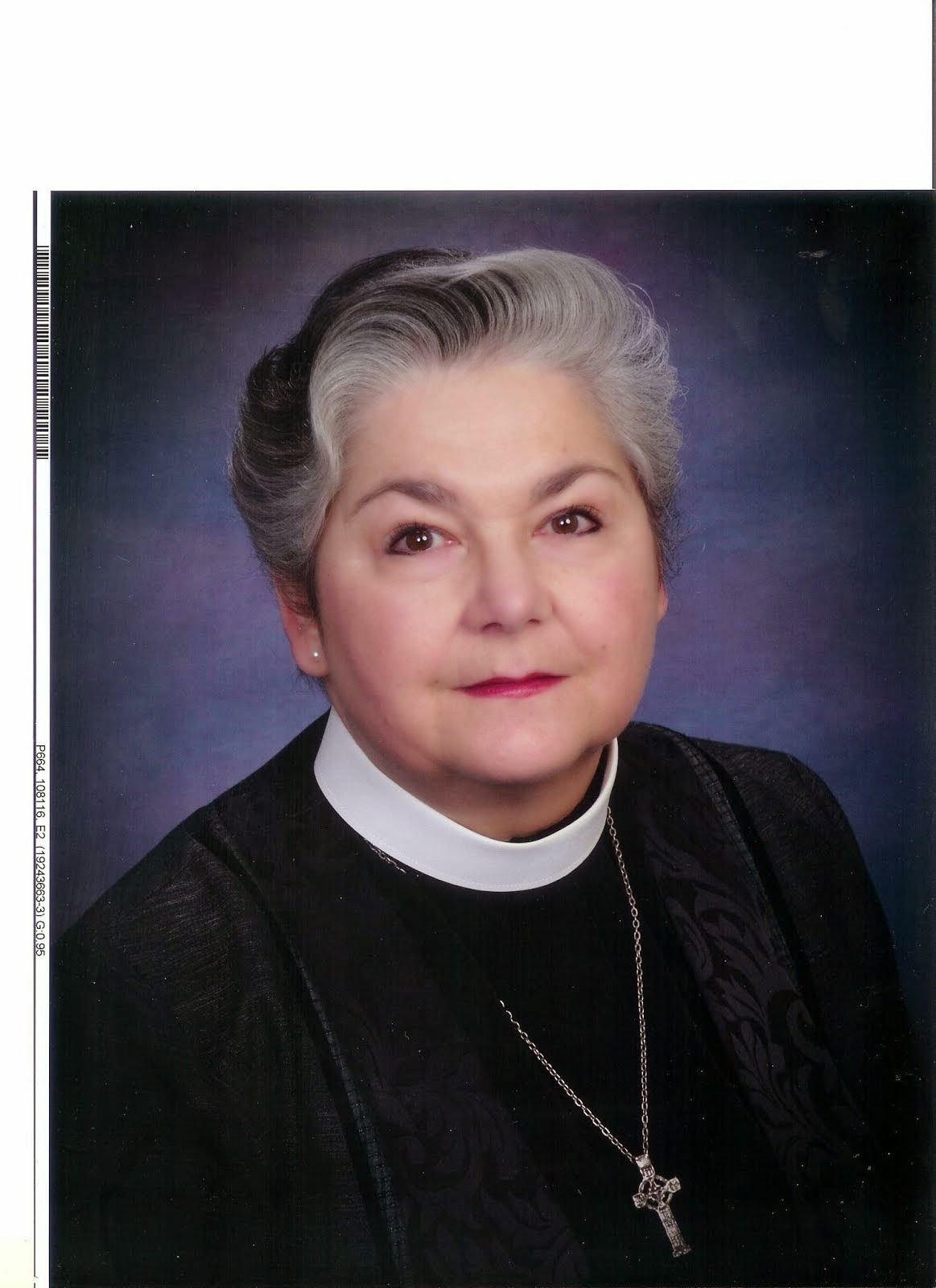Once a year, it is
traditional for the Torah scrolls in a synagogue to be inspected, and if
necessary, repaired. These sacred documents, like an old copy of the Christian
Bible, get torn or stained with continual use, and it is considered a mitzvah,
or commandment, to restore them so that they may continue to be used in worship
and study. Such restoration is not easy: it is as much art as science as
theology, and there are experts who are gifted in this task. Ancient materials
and tools are used, no Scotch tape or Wite-Out! It is work, but it is holy
work, because preserving the understanding of God, and repairing the documents
that help the faithful to continue to worship and to learn, is necessary if one
is to stay in right relationship with our Creator.
Throughout the history
of that relationship, from the earliest times to the present, there have been
stories of the work of restoration and of preservation, and today, as we
continue in this season of Lent, we have two more.
In Luke’s Gospel,
Jesus is headed in one direction, and one direction only: to Jerusalem. It is
in Jerusalem that he will die. It is in Jerusalem that the prophecies of
ancient days will be fulfilled. It is in Jerusalem that he will rise in glory.
And on each step of his active ministry, his eyes are set on that city as both
destiny and execution chamber.
In today’s Gospel
passage, Jerusalem is at the center of the story. Jesus is warned by some Pharisees, those
people whom he often criticizes and who will play a crucial role in his
eventual trial and death, that Herod is after him and he had better make
himself scarce. They know – everyone knows – that he is headed for Jerusalem.
They may not know why, but they know that is his eventual destination. And the
Pharisees say, “Not a good idea, rabbi. Lay low. Herod is out to get you.”
Why would Pharisees
do this? The evangelist Luke has always identified the Pharisees as enemies of
Jesus. Do they really care for him, or is there a darker meaning to their
words? Are they actually working for Herod, and do they hope that their words
will either shut Jesus up or divert him from Jerusalem, where Jesus’ message
might reach even more people? Is it another test of Jesus’ strength of will? If
he follows their suggestion, he is a false prophet. If he goes to Jerusalem, he
forces their hand as his opposition: they must confront his claims directly and
reject them, which would cause those who follow him to cry out, or so they
fear.
His response is
unambiguous: “Go tell that fox Herod that I’ve got work to do here (healings,
casting out demons and such) and when I am done with that I am headed to
Jerusalem.”
He knows that
directly challenging Herod will put him in danger. He knows that going to
Jerusalem means death. But Jesus knows and accepts that it is God’s will and his
destiny that he should go to Jerusalem and die there. As the passage ends, Jesus
mourns this beautiful city. “Jerusalem,
Jerusalem, the city that kills the prophets and stones those who are sent to
it! How often have I desired to gather your children together as a hen gathers
her brood under her wings, and you were not willing!”
Jerusalem, the place where the great temple of Solomon had been
built and eventually destroyed. Jerusalem, the place where another great temple
was built after the Babylonian exile, the one that Herod the Great expanded,
not out of love of God, but to show his own might. This Herod the Great, the
same Jewish client-king of the Roman Empire who slaughtered the innocents, was the father of Herod Antipas referred to in
this passage. Herod Antipas, ruling in Jerusalem, the place where Jesus saw as
his final destination.
This brief passage
lays out how the powers and principalities of the world fear Jesus. They fear
that his message will make them irrelevant. They fear that he will rile up the
people against them. They fear that they will lose their power and wealth and
the good graces of the Romans Empire as bestowed on Herod.
And they are right
to fear all of that.
What they don’t
count on, however, is that Jesus does not work in the same way that they do. He
doesn’t expect to go to Jerusalem as a triumphant conqueror. He expects to be
conquered there, at least in the eyes of the world, until a greater truth is
revealed. And so he weeps, not because he is afraid, but because of the deep
tragedy of it all. Jerusalem is a place of blood and death, when once it was
intended to be a place of God’s glory, and no one sees this but him.
Jesus decries the fate of the city, naming it as a place
not of great religious fervor – what you would expect from the city which
housed the temple – but a place which has a track record of death for those who
speak out, who seek to restore right relationship between God and God’s people.
And he prophesies what will happen when he goes there, citing Psalm 117: “See, your house is left to you. And I tell you, you will not
see me until the time comes when you say, 'Blessed is the one who comes in the
name of the Lord.'"
The house - that temple that was supposed to be a place
of worship to the one true God but has become something else entirely – is left
to those who do not understand Jesus’ message. It will be destroyed a final time,
in another revolt around 66 CE. It is worthless to stand as anything but a
symbol of corrupted power. It has no power to save people’s souls. But the one
who goes to Jerusalem, the one who will die there, will return and will save
people’s souls.
It is a
powerful picture of jesus’ strength in the face of what awaits him in that
city, and it gains even more poignancy when we contrast it with the beginning
of the story that takes us eventually to the cross: God’s promise to his people
through the patriarch Abraham. We hear that in the Old Testament reading this
morning, when God and Abram are in conversation. Abram grieves, because he sees
no future for his line. His only heirs are a distant cousin and an illegitimate
slave child. God promises him that his offspring will be as plentiful as the
stars in the sky. And Abraham, then still called Abram, does the preparatory
work that God commands, bringing offerings of animals and birds, sacrificing
them in the ancient ways. And the covenant is made between God and Abram, and
the story of God’s chosen people begins, with the work that Abram did with the
heifer, the goat, the ram, the pigeon, the turtledove. Sacrificed, so that
God’s relationship with his people can be sealed.
Would that it
were that simple, that the relationship begun that night in the desert would be
the whole story, and that the relationship would remain unchanged to this day.
But we know
that the story has not been that simple. Time and again, we tore the fabric of
the covenant. Time and again, God needed to send someone to remind us of what
was promised, those prophets who often were killed for their harsh words of
truth. And it kept happening, until God finally recognized that a stronger way
of teaching and changing the hearts of his wayward people was necessary. To keep
God’s side of the covenant, God had to send Jesus to remind us of our part of
the covenant. Love God and no other. Love each other and care for each other. The
journey to Jerusalem began not in the Galilee, but under that night sky near
the oaks of Mamre as Abram and God exchanged their promises. And just as Abram
was given some very specific work to do to seal the covenant – get those
animals and sacrifice them - so also
Jesus was given some specific work to do to reclaim the covenant, a new
covenant between God and God’s people. Go to Jerusalem – that city that kills
prophets. Go and prophesy. Go and die. Go and fulfill the promise of the
covenant by redeeming the people.
So what does
this mean to us, the very people of the covenant? In this season of Lent in
particular, we have work to do. We must work to reclaim the covenant once
again. This is not the work of repairing a Torah scroll or rebuilding a temple.
It is the work of repairing and restoring our souls, seeing where the edge was
torn, noting where a word or two has faded, recognizing that love of God and
neighbor is no longer central to our understanding of ourselves and our world.
It is work that is not mechanical in nature – you can’t simply sit somewhere
and recite prayers by rote without thinking about what is behind them. It means
we need to be silent and take a look deep into our hearts. What do we see
there? Envy? Anger? Jealousy? Are we more consumed with how we compare to
others than how we help others? Have we forgotten that we are beloved and have
a purpose, no matter what stage of life we are in? It takes more than some Scotch
tape or Wite-Out to repair and restore the soul, and the first step is
assessing what condition we are in. Only then can we do the necessary work of
patching and rewriting and refolding the scroll of our personal covenant with
the One who loves us most.
Amen.







No comments:
Post a Comment